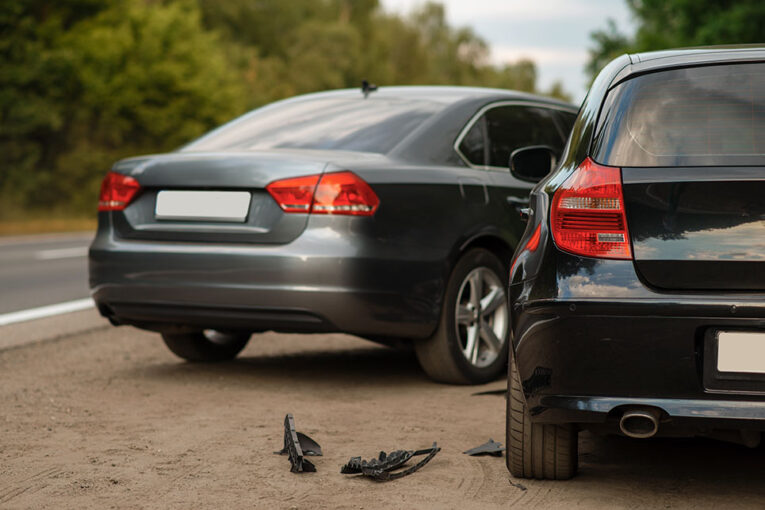How Much Can I Get for a Colorado Car Accident?
If you or a loved one has been injured in a car accident in Fort Collins or nearby communities, you’re likely wondering what kind of compensation you may be entitled to. With Fort Collins’ busy streets, high-traffic intersections, and a growing population, car accidents are a significant concern, and Larimer County experiences hundreds of accidents annually, many resulting in serious injuries or fatalities.
At Anzen Legal Group, we understand how overwhelming the aftermath of an accident can be. Medical expenses, lost wages, and emotional stress add up quickly, and navigating the complexities of insurance claims and legal processes can feel daunting. We’re here to help you understand the factors that influence car accident compensation in Colorado, the types of damages you may be able to claim, and how state laws can affect your case.
Our goal is to guide you toward a strong recovery and help you make informed decisions as you seek the compensation you deserve. If you or a loved one was injured in a car accident, we invite you to call our office 970-893-8857 to schedule a consultation.
What Damages Can I Claim for a Car Accident in Colorado?
In Colorado, car accident victims may pursue compensation known as damages to cover various types of losses. The state allows for two primary categories of compensatory damages: economic damages and non-economic damages. Understanding these damages is key to determining what you might be eligible for in your claim.
Economic Damages
Economic damages cover specific financial losses you’ve experienced because of the accident. These damages are generally more straightforward to calculate as they are based on real expenses and can often be verified with documentation. Examples of economic damages include:
- Medical Expenses: This includes all costs associated with treating injuries sustained in the accident, such as hospital bills, surgeries, medications, and physical therapy.
- Lost Wages: If you were forced to take time off work due to your injuries, you could claim lost wages. This category can also cover reduced earning capacity if your injuries prevent you from returning to your previous job.
- Property Damage: If your vehicle or other personal property was damaged in the accident, compensation may cover repairs or replacement costs to restore your vehicle or belongings to their pre-accident condition.
Non-Economic Damages
Non-economic damages are more subjective and are meant to address the pain and suffering endured by the victim due to the accident. While not as easily quantified, these damages are just as important as economic damages in achieving a fair outcome. In Colorado, non-economic damages can include:
- Pain and Suffering: Compensation for physical pain, discomfort, and emotional distress that result from injuries.
- Loss of Enjoyment of Life: If your injuries prevent you from participating in activities you once enjoyed, you may be entitled to compensation for this loss.
- Emotional Distress: This includes compensation for any psychological impact the accident may have had, such as anxiety, depression, or trauma.
In some cases, punitive damages may also be awarded. These damages differ from compensatory damages in that they are intended to punish the at-fault party for especially reckless or malicious behavior and serve as a deterrent against similar behavior in the future. While punitive damages are less common, Colorado does allow them under certain conditions, typically when gross negligence or intentional harm is involved.
What Factors Influence the Amount of Compensation Awarded In A Colorado Car Accident?
The compensation you may receive in a Colorado car accident case depends on several critical factors, each of which can significantly impact the final settlement or award.
Severity and Nature of Your Injuries
The type and severity of your injuries are among the most important factors affecting your compensation. Severe injuries like traumatic brain injuries, spinal cord injuries, or multiple fractures often require extensive treatment, long-term care, or even permanent adjustments to your lifestyle. Colorado law accounts for these additional needs by allowing for higher compensation amounts in cases involving serious injuries. Insurance companies and courts will consider both the immediate costs of medical treatment and any anticipated future expenses.
Medical Costs and Future Treatment Needs
Medical expenses can encompass a wide range of treatments, from emergency care at the accident scene to surgeries, medications, physical therapy, and specialized medical equipment. Your compensation may also include future medical costs if your injuries require ongoing care or rehabilitation. Proper documentation of medical records, bills, and statements from healthcare providers is essential to substantiate these claims and ensure you receive a fair amount to cover both current and future treatment needs.
Lost Wages and Reduced Earning Potential
When injuries prevent you from returning to work, either temporarily or permanently, the loss of income can be significant. Compensation for lost wages not only covers income you’ve missed due to your injuries but may also account for your diminished ability to earn in the future if your injuries prevent you from performing your previous job duties. Calculating lost wages involves examining pay stubs, employment records, and sometimes even testimony from economic experts who can assess how your future earning potential has been impacted.
Property Damage and Vehicle Repairs
Alongside bodily injuries, car accidents often result in substantial vehicle damage or the loss of personal items inside the vehicle. Compensation in Colorado for property damage typically covers either the repair costs or the fair market value of the vehicle if it’s deemed a total loss. Additionally, any personal belongings damaged in the accident, like electronics or valuable items, can also be claimed. Insurance adjusters will assess the extent of damage to your property, but hiring an experienced Colorado car accident attorney can help ensure that the compensation you receive truly reflects the value of what was lost.
Impact on Daily Life and Pain and Suffering
The emotional and physical toll of a car accident can extend far beyond financial losses. In Colorado, non-economic damages consider the broader impact on your quality of life, encompassing everything from chronic pain to the inability to engage in hobbies and social activities. Pain and suffering damages are more subjective but critical in achieving a full and fair settlement. Courts often use different calculation methods, such as the multiplier method or the per diem method, to assign a monetary value to these non-economic damages, reflecting the extent of your suffering over time.
As Colorado car accident lawyers with decades of experience, after learning about the facts of your case, we can help identify all potentially liable parties and explain the types of compensation to which you may be entitled.
Are There Caps on Damages in Colorado?
In Colorado, certain caps apply to damages in personal injury and wrongful death cases, including non-economic damages for pain and suffering and emotional distress. Recent legislative changes will increase these caps starting in 2025, affecting compensation for car accidents and medical malpractice claims. Here’s a breakdown of the new limits under the law effective January 1, 2025:[1]
Increased Non-Economic Damages Cap
For civil actions filed on or after January 1, 2025, the cap on non-economic damages will increase significantly:
- Non-Economic Damages: The previous cap of $250,000 will rise to $1.5 million.
- Adjustments for Inflation: Beginning January 1, 2028, this cap will adjust every two years based on inflation.
Wrongful Death Damages Cap
The new law also adjusts the limits on wrongful death claims:
- Wrongful Death Damages: The cap will be $2.125 million as of 2025.
- Inflation Adjustments: Starting January 1, 2028, this cap will also adjust biennially for inflation.
Expanded Right to Bring Wrongful Death Claims
The new act expands who may bring a wrongful death claim by including siblings of the deceased in certain circumstances, previously limited to immediate family members or legal representatives.
Medical Malpractice Caps for Wrongful Death and Non-Economic Damages
The law also increases the limits on damages specific to medical malpractice cases, gradually raising the caps over the next five years:
- Medical Malpractice Wrongful Death Cap: This cap will start at $1.575 million and increase incrementally over five years, with adjustments for inflation every two years after 2028.
- Non-Economic Damages in Medical Malpractice: Currently capped at $300,000, this limit will rise to $875,000 over five years, with further adjustments for inflation biennially after 2028.
Summary of Changes Effective January 1, 2025
These changes provide Colorado residents with the potential for significantly higher compensation in cases involving non-economic damages, wrongful death, and medical malpractice. By allowing for inflation adjustments every two years, the state aims to keep these caps responsive to economic conditions, enhancing fairness for victims and their families.
These increases mark a significant shift in Colorado’s approach to damage caps, offering greater potential compensation for those affected by personal injuries, wrongful death, and medical malpractice.
How Does Colorado’s Comparative Negligence Rule Affect Compensation?
Colorado follows a modified comparative negligence rule when determining fault and compensation in car accidents. Under this rule, you may still recover damages even if you’re partially at fault, as long as you are not more than 50% responsible for the accident.
For instance:
- If you are found to be 20% at fault in a car accident that results in a $100,000 settlement, your compensation would be reduced by 20%, leaving you with $80,000.
- However, if you are found to be 50% or more at fault, you would not be entitled to any compensation under Colorado law.[2]
This rule emphasizes the importance of proving fault and minimizing any share of blame attributed to you. Colorado’s comparative negligence rule ensures that the compensation you receive reflects your level of responsibility in the accident, which can have a major impact on your case’s outcome.
What Steps Should You Take After a Car Accident in Colorado?
To maximize your chances of receiving fair compensation, it’s crucial to take the right steps following a car accident:
- Seek Medical Attention – Even if injuries appear minor at first, they can worsen over time. Having a thorough medical evaluation immediately after the accident helps establish a link between the accident and any injuries, which can be essential for your claim.
- Document the Accident Scene – Take photographs of the accident scene, vehicle damage, and any visible injuries. If possible, collect witness statements and contact information, and obtain a copy of the police report to support your case.
- Notify Your Insurance Company – Report the accident to your insurance company, but avoid giving detailed statements before consulting an attorney. Insurance adjusters often seek to minimize claims, so it’s crucial to protect your rights.
- Consult an Experienced Colorado Car Accident Attorney – Navigating Colorado’s legal and insurance requirements alone can be challenging, especially when injuries and significant damages are involved. An experienced car crash attorney can guide you through the process, protect your rights, and help you secure the compensation you deserve.
How Are Non-Economic Damages Calculated in Colorado?
Non-economic damages, such as pain and suffering, loss of enjoyment of life, and emotional distress, are inherently subjective and harder to quantify than economic damages. In Colorado, two methods are commonly used to calculate these types of damages:
- Multiplier Method: This method involves multiplying the total amount of economic damages by a certain factor—usually between 1.5 and 5, depending on the severity of the injury and its long-term effects. For example, if you have $50,000 in medical expenses and lost wages, and a multiplier of 3 is applied, your non-economic damages would amount to $150,000.
- Per Diem Method: The per diem method assigns a specific dollar amount to each day from the accident date until the day you reach maximum recovery. This method can be particularly effective in cases where injuries have a clear recovery timeline, although it may be less applicable for permanent or long-term injuries.
Each case is unique, and courts may consider additional factors when assessing non-economic damages, such as the impact on relationships, mental health, and the overall life changes caused by the accident. Working with an experienced car accident attorney can help ensure that your non-economic damages are calculated fairly.
Schedule A Consultation With An Experienced Colorado Car Accident Lawyer
At Anzen Legal Group, we bring decades of experience to representing injury victims and their families across Colorado. We understand the complexities of personal injury, wrongful death, and medical malpractice cases and are committed to helping clients navigate these challenging situations after unexpected car accidents.
If you’d like to learn more about your legal rights and options, we invite you to call our office to schedule a consultation. We’re here to provide the guidance and advocacy you need to move forward.
[1] Raise Damage Limit Tort Actions | Colorado General Assembly
[2] Colorado Title 13. Courts and Court Procedure § 13-21-111 | FindLaw





